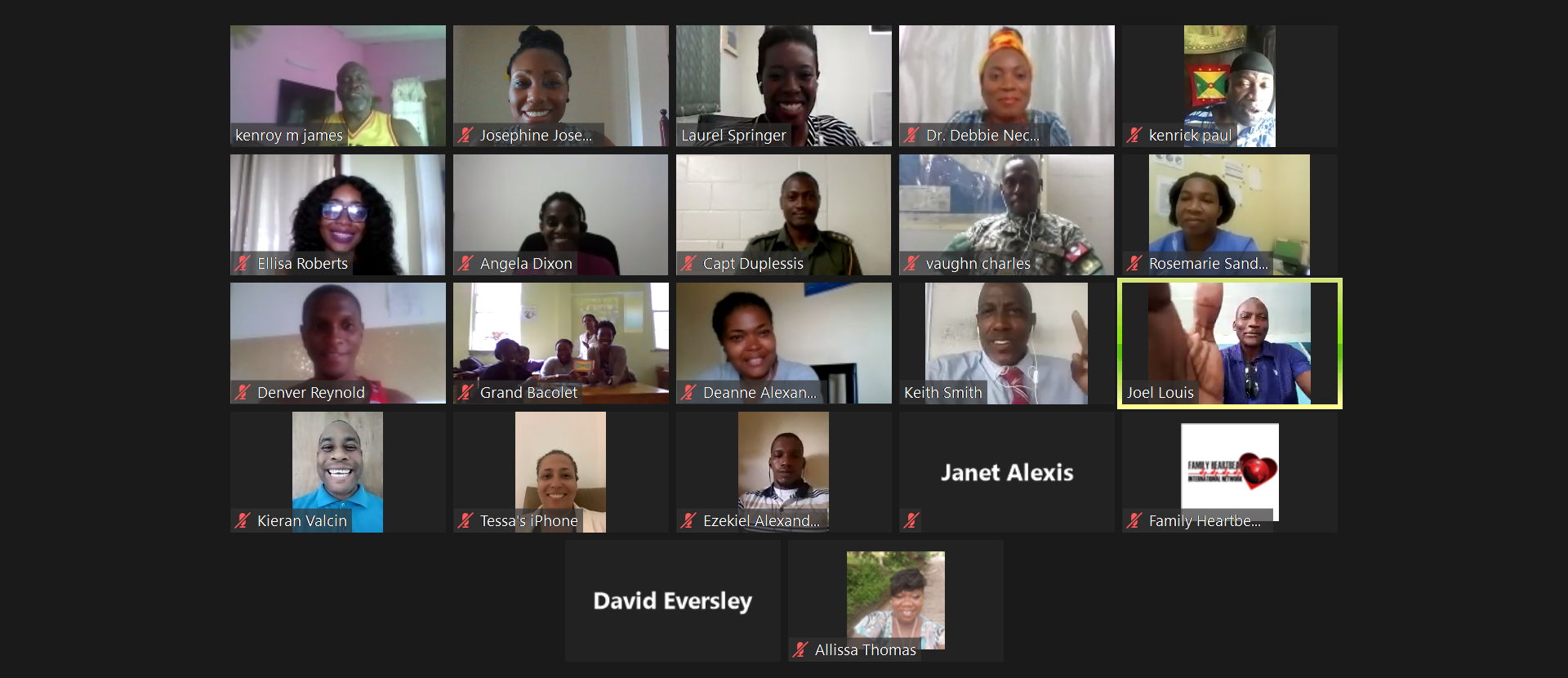OECS Justice Sector Officials Learn about Trauma and its effects on Children in the Justice System
OECS Media Release
The Juvenile Justice Reform Project II (JJRP) is building the capacity of justice sector officials across the OECS to provide services to children in the justice system and their families. Support service personnel in the sector, including detention and rehabilitation managers and staff, counsellors, social workers, probation officers, supervisors and magistrates, received training in trauma and its correlation to children in conflict with the law. More than fifty (50) individuals from Antigua & Barbuda, Grenada, and Saint Lucia participated in the training sessions which were held between November 16th and November 24th, 2020.
The JJRP is funded by the United States Agency for International Development (USAID), and implemented by the OECS Commission, and seeks to expand the capacity of nations to provide diversion, rehabilitation and reintegration mechanisms for children in conflict with the law.
The Family Heartbeat International Network Inc. team delivered the trauma training sessions with a focus on areas such as: types of trauma; trauma triggers; correlation between those who have experienced trauma and their involvement in the juvenile justice system; trauma and how it presents among children/youth; best practices/holistic approaches for working with children/youth (and their families) who have experienced trauma; trauma case studies; overview of strategies and techniques for addressing trauma; and de-escalation strategies and techniques for working with children and youth who have experienced trauma.
Keith Smith, President and Founder of Back on Track, a reintegration programme in Dennery, Saint Lucia, who participated in the training said: “The sessions were a strong reminder that before there is any drama, there is some trauma when it comes to dealing with children in conflict with the law. We have to know the signs and be more in tune to the trauma that has been experienced in order to support the youth as they attempt to heal and become more productive members of society”.
Mr. Kenroy James, Counsellor at the Antigua and Barbuda Boys Training Centre also shared that the training was extremely beneficial for him. He learned a lot of strategies that he will be passing onto to his team members as they seek to guide and support the many youth that they deal with from varied backgrounds.
Dr. Debbie Neckles from the Grand Bacolet Juvenile Rehabilitation & Treatment Centre in Grenada, in discussing the training programme stated: “This training has reinforced my knowledge base and there is always the opportunity to learn something new. Also, I am very pleased that the teachers from our Centre participated, as they are now better able to understand and align with the actions of the clinical team to support the youth in more meaningful ways.”
Speaking on the trauma training series, Ms. Josephine Joseph – Technical Specialist at JJRP expressed appreciation to the attendees and lecturers for making the training a success. She further stated, “The content is critical as we advance the child justice reform agenda. Understanding the linkages between child trauma and behavior, and how our support teams can utilize the knowledge and implement strategies to connect and support our youth, is such important work. We look forward to seeing the impact of this training…and more importantly in the everyday lives of our children in conflict with the law.”
About OECS/USAID Juvenile Justice Reform Project Phase II (JJRP)
The Juvenile Justice Reform Project (JJRP) Phase II, funded by the United States Agency for International Development (USAID), and being implemented by the OECS Commission, deals specifically with children in conflict with the law and the provision of diversion, rehabilitation and reintegration mechanisms for assisting children in the six (6) OECS independent Member States of Antigua and Barbuda, the Commonwealth of Dominica, Grenada, St Kitts and Nevis, Saint Lucia and St. Vincent and the Grenadines Over the four years of JJRP Phase II, some key achievements include:
-
Child Justice legislation was passed in Antigua and Barbuda, Grenada, Saint Lucia, St. Kitts and Nevis and St. Vincent and the Grenadines;
-
A Legacy model and framework to guide the use of diversion, rehabilitation and reintegration has been developed and is being adopted in all of the countries;
-
325 children have been diverted/given alternatives from arrest or custodial sentences, representing a more than 300% increase in the use of diversion;
-
215 children in conflict with the law completed Aggression Replacement Training (ART®)
-
1440 service providers have been trained to design and deliver interventions that enable successful diversion, rehabilitation and reintegration of children in conflict with the law.

.png)
